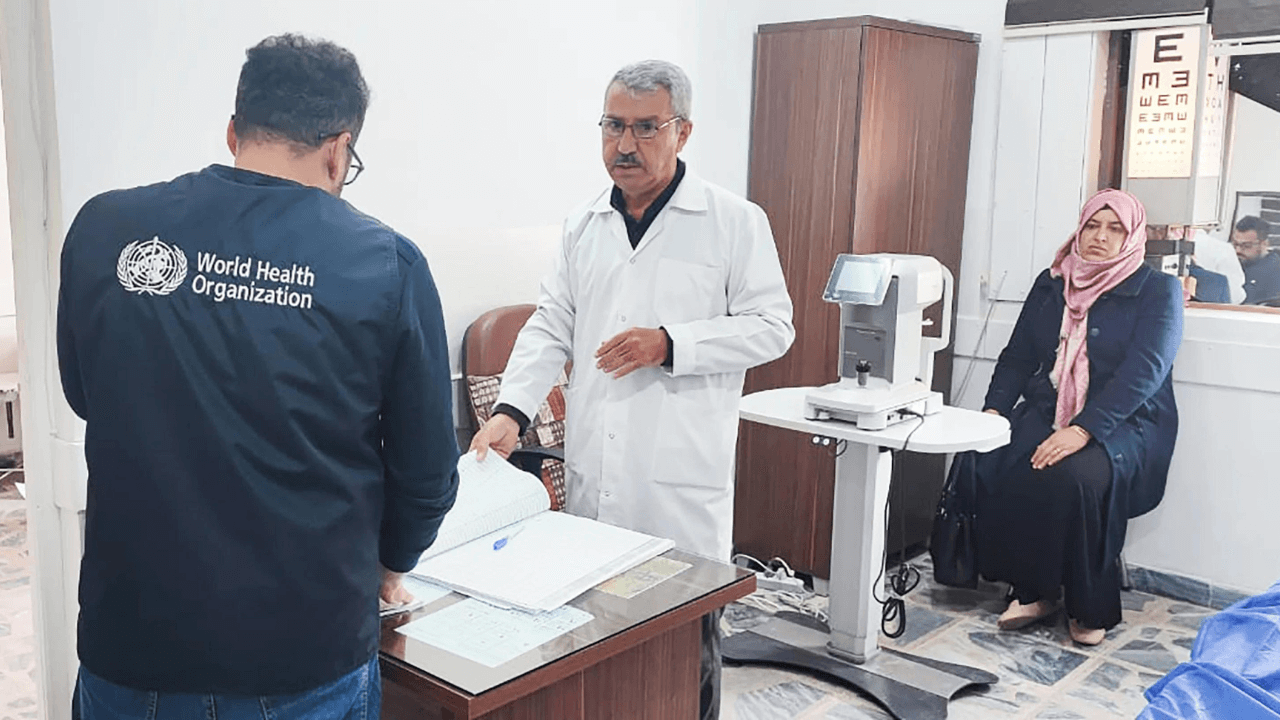The World Health Organization (WHO) commends Iraq for successfully eliminating trachoma as a public health concern, becoming the fifth country in the WHO’s Eastern Mediterranean Region to achieve this significant accomplishment.
What is Trachoma?
Trachoma is a neglected tropical disease caused by the bacterium Chlamydia trachomatis. It spreads through contact with infected discharge from the eyes or nose, often transmitted through contaminated fingers, objects, and flies. Poor hygiene, overcrowding, and lack of proper water and sanitation facilities contribute to its transmission.
To eliminate trachoma as a public health concern, the World Health Organization (WHO) advocates the SAFE strategy, which includes measures to reduce transmission of the bacteria, treat existing infections, and manage their effects.
As part of the 2021–2030 neglected tropical disease roadmap, efforts are underway to prevent, control, eliminate, and potentially eradicate 20 diseases by 2030. Progress in addressing trachoma and other neglected tropical diseases can significantly improve the well-being of marginalized communities and alleviate their social and economic burdens.
SAFE Strategy to Eliminate Trachoma
The SAFE strategy is a comprehensive approach to addressing trachoma:
- Surgery: This involves treating the advanced stage of the disease, known as trachomatous trichiasis, which can lead to blindness. Surgical procedures help correct eyelid deformities and prevent further damage.
- Antibiotics: Antibiotics are used to clear the infection caused by Chlamydia trachomatis. A key component is mass drug administration of the antibiotic azithromycin, which is generously provided by Pfizer through the International Trachoma Initiative.
- Facial Cleanliness: Promoting good hygiene practices, especially keeping the face clean, helps reduce the spread of the infection from person to person.
- Environmental Improvement: Enhancing access to clean water and proper sanitation facilities is crucial in preventing the transmission of trachoma. Adequate sanitation can minimize the presence of flies that can spread the infection.
By addressing each of these elements, the SAFE strategy aims to control and eliminate trachoma as a public health concern and improve the overall well-being of affected communities.
Iraq’s Efforts
The achievement of Iraq’s national trachoma program highlights the potential of strong leadership and collaborative efforts.
- Iraq initiated its national trachoma program in 2012, aiming to eliminate the disease domestically.
- A surveillance system was established to detect and manage trachoma cases in eye care facilities and through school screening programs in partnership with the Ministry of Education.
- A diverse team of healthcare professionals, including refractionists, optometrists, ophthalmologists, and surgeons, contributed to these endeavors.
- Even after achieving elimination, Iraq and WHO will continue vigilant monitoring in previously affected areas to swiftly address any potential resurgence.
- WHO’s recognition of Iraq’s elimination of trachoma as a public health issue marks the eighth Eastern Mediterranean Region country to have eliminated at least one neglected tropical disease.
- Iraq’s success in eradicating trachoma is a significant step towards realizing the regional goal of universal health coverage.
Trachoma, a leading cause of global blindness, remains endemic in six countries within WHO’s Eastern Mediterranean Region. However, substantial progress has been made in reducing the number of individuals requiring antibiotic treatment for trachoma elimination, decreasing from 39 million in 2013 to 6.9 million as of April 2023.
Global Progress
- Globally, Iraq has joined the ranks of 17 other nations that the World Health Organization (WHO) has officially recognized for successfully eliminating trachoma as a public health concern.
- These countries include Benin, Cambodia, China, Gambia, Ghana, the Islamic Republic of Iran, Lao People’s Democratic Republic, Malawi, Mali, Mexico, Morocco, Myanmar, Nepal, Oman, Saudi Arabia, Togo, and Vanuatu.
- Furthermore, Iraq’s accomplishment has led to it being acknowledged as the 50th country worldwide to have eliminated at least one neglected tropical disease (NTD) according to the WHO’s criteria.
- This achievement marks a significant midway point toward the WHO’s goal of reaching 100 countries by the year 2030 as outlined in their road map for addressing neglected tropical diseases.
- Since the beginning of this year, an additional five countries have successfully undergone the necessary validation processes to be recognized for eliminating one specific NTD.
The efforts of neglected tropical disease programs are noteworthy in their contribution to universal health coverage, especially considering their ability to reach and serve underserved communities. These programs play a crucial role in extending healthcare to segments of the population that might otherwise lack access to medical services.
- Weekly Current Affairs 2025 PDF For Bank, SSC, UPSC Exams

- Unsung Heroes of India: 10 Unknown Freedom Fighters You Should Know

- 26 December Current Affairs 2023 in English

- Daily Current Affairs 2025, Check Today’s Current Affairs

- April Month Current Affairs 2024, Download PDF

- June Month Current Affairs 2024, Download PDF


Hello, I’m Aditi, the creative mind behind the words at Oliveboard. As a content writer specializing in state-level exams, my mission is to unravel the complexities of exam information, ensuring aspiring candidates find clarity and confidence. Having walked the path of an aspirant myself, I bring a unique perspective to my work, crafting accessible content on Exam Notifications, Admit Cards, and Results.
At Oliveboard, I play a crucial role in empowering candidates throughout their exam journey. My dedication lies in making the seemingly daunting process not only understandable but also rewarding. Join me as I break down barriers in exam preparation, providing timely insights and valuable resources. Let’s navigate the path to success together, one well-informed step at a time.
